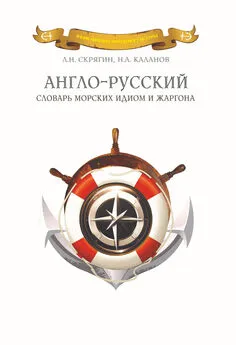Adam Makkai - Словарь американских идиом: 8000 единиц
- Название:Словарь американских идиом: 8000 единиц
- Автор:
- Жанр:
- Издательство:неизвестно
- Год:неизвестен
- ISBN:нет данных
- Рейтинг:
- Избранное:Добавить в избранное
-
Отзывы:
-
Ваша оценка:
Adam Makkai - Словарь американских идиом: 8000 единиц краткое содержание
Это обновленное и дополненное издание, содержащее более 8000 идиоматических
слов и выражений, причем каждое из которых снабжено грамматическим объяснением
и практическим примером. Словарь содержит лексемные идиомы, фразеологические
единицы и поговорки, имеющие особенное значение. В нем приведены наиболее
употребительные выражения только американского английского языка. Этот словарь — идеальное пособие для студентов, часто разъезжающих бизнесменов и просто
путешественников.
Словарь американских идиом: 8000 единиц - читать онлайн бесплатно полную версию (весь текст целиком)
Интервал:
Закладка:
[cap]See: FEATHER IN ONE’S CAP, SET ONE’S CAP FOR, PUT ON ONE’S THINKING CAP.
[cap the climax] {v. phr.} To exceed what is already a high point of achievement. •/ Sam’s piano recital was great, but Bill’s performance capped the climax. /
[card]See: CREDIT CARD, FLASH CARD, HOUSE OF CARDS, IN THE CARDS or ON THE CARDS, LAY ONE’S CARDS ON THE TABLE, PLAY ONE’S CARDS RIGHT, PUT ONE’S CARDS ON THE TABLE, STACK THE CARDS, TRUMP CARD.
[cards stacked against one]See: STACK THE CARDS.
[card up one’s sleeve] {n. phr.} , {informal} Another help, plan, or argument kept back and produced if needed; another way to do something. •/ John knew his mother would lend him money if necessary, but he kept that card up his sleeve. / •/ Bill always has a card up his sleeve, so when his first plan failed he tried another. / Compare: ACE IN THE HOLE(2).
[care]See: COULDN’T CARE LESS, HAVE A CARE, GIVE A HANG or CARE A HANG, TAKE CARE.
[carpet]See: CALL ON THE CARPET, MAGIC CARPET, ROLL OUT THE RED CARPET.
[car pool] {n.} A group of people who own cars and take turns driving each other to work or on some other regular trip. •/ It was John’s father’s week to drive his own car in the car pool. /
[carriage trade] {n.} , {literary} Rich or upper class people. •/ The hotel is so expensive that only the carriage trade stays there. / •/ The carriage trade buys its clothes at the best stores. /
[carrot and stick] {n. phr.} The promise of reward and threat of punishment, both at the same time. •/ John’s father used the carrot and stick when he talked about his low grades. /
[carry]See: CASH-AND-CARRY.
[carry a torch]or [carry the torch] {v. phr.} 1. To show great and unchanging loyalty to a cause or a person. •/ Although the others gave up fighting for their rights, John continued to carry the torch. / 2. {informal} To be in love, usually without success or return. •/ He is carrying a torch for Anna, even though she is in love with someone else. /
[carry a tune] {v. phr.} To sing the right notes without catching any false ones. •/ Al is a wonderful fellow, but he sure can’t carry a tune and his singing is a pain to listen to. /
[carry away] {v.} To cause very strong feeling; excite or delight to the loss of cool judgment. •/ The music carried her away. / •/ He let his anger carry him away. / — Often used in the passive, •/ She was carried away by the man’s charm. / •/ He was carried away by the sight of the flag. /
[carry coals to Newcastle] {v. phr.} To do something unnecessary; bring or furnish something of which there is plenty. •/ The man who waters his grass after a good rain is carrying coals to Newcastle. / •/ Joe was carrying coals to Newcastle when he told the doctor how to cure a cold. / (Newcastle is an English city near many coal mines, and coal is sent out from there to other places.)
[carrying charge] {n.} An extra cost added to the price of something bought on weekly or monthly payments. •/ The price of the bicycle was $50. Jim bought it for $5.00 a month for ten months plus a carrying charge of $1 a month. /
[carry on] {v.} 1. To cause death of; kill. •/ Years ago smallpox carried off hundreds of Indians of the Sioux tribe. / Compare: WIPE OUT. 2. To succeed in winning. •/ Bob carried off honors in science. / •/ Jim carried off two gold medals in the track meet. / 3. To succeed somewhat unexpectedly in. •/ The spy planned to deceive the enemy soldiers and carried it off very well. / •/ In the class play, Lloyd carried off his part surprisingly well. /
[carry --- off one’s feet]See: KNOCK OFF ONE’S FEET, SWEEP OFF ONE’S FEET.
[carry off the palm]or [bear off the palm] {v. phr.} , {literary} To gain the victory; win. •/ John carried off the palm in the tennis championship match. / •/ Our army bore off the palm in the battle. / (From the fact that long ago a palm leaf was given to the winner in a game as a sign of victory.)
[carry on] {v.} 1. To work at; be busy with; manage. •/ Bill and his father carried on a hardware business. / •/ Mr. Jones and Mr. Smith carried on a long correspondence with each other. / 2. To keep doing as before; continue. •/ After his father died, Bill carried on with the business. / •/ The colonel told the soldiers to carry on while he was gone. / •/ Though tired and hungry, the Scouts carried on until they reached camp. / Compare: BEAR UP(2), GO ON. 3a. {informal} To behave in a noisy, foolish, and troublesome manner. •/ The boys carried on in the swimming pool until the lifeguard ordered them out. / 3b. {informal} To make too great a show of feeling, such as anger, grief, and pain. •/ John carried on for ten minutes after he hit his thumb with the hammer. / Compare: TAKE ON(4). 4. {informal} To act in an immoral or scandalous way; act disgracefully. •/ The townspeople said that he was carrying on with a neighbor girl. /
[carry one’s cross]or {literary} [bear one’s cross] {v. phr.} To live with pain or trouble; keep on even though you suffer or have trouble. •/ Weak ankles are a cross Joe carries while the other boys play basketball. / •/ We didn’t know the cheerful woman was bearing her cross, a son in prison. /
[carry out] {v.} To put into action; follow; execute. •/ The generals were determined to carry out their plans to defeat the enemy. / •/ John listened carefully and carried out the teacher’s instructions. /
[carry over] {v.} 1. To save for another time. •/ The store had some bathing suits it had carried over from last year. / •/ What you learn in school should carry over into adult life. / 2. To transfer (as a figure) from one column, page, or book to another. •/ When he added up the figures, he carried over the total into the next year’s account book. / 3. To continue in another place. •/ The story was carried over to the next page. /
[carry the ball] {v. phr.} , {informal} To take the most important or difficult part in an action or business. •/ None of the other boys would tell the principal about their breaking the window, and John had to carry the ball. / •/ When the going is rough, Fred can always be depended on to carry the ball. /
[carry the banner] {v. phr.} To support a cause or an ideal with obvious advocacy. •/ Our college is carrying the banner for saving the humpback whale, which is on the list of endangered species. /
[carry the day] {v. phr.} , {informal} To win completely; to succeed in getting one’s aim accomplished. •/ The defense attorney’s summary before the jury helped him carry the day. /
[carry the torch]See: CARRY A TORCH.
[carry the weight of the world on one’s shoulders]See: WEIGHT OF THE WORLD ON ONE’S SHOULDERS.
[carry through] {v.} 1a. To put into action. •/ Mr. Green was not able to carry through his plans for a hike because he broke his leg. / 1b. To do something you have planned; put a plan into action. •/ Jean makes good plans but she cannot carry through with any of them. / Compare: GO THROUGH WITH, CARRY OUT. 2. To keep (someone) from failing or stopping; bring through; help. •/ When the tire blew out, the rules Jim had learned in driving class carried him through safely. /
[carry weight] {n.} To be influential; have significance and/or clout; impress. •/ A letter of recommendation from a full professor carries more weight than a letter from an assistant professor. /
[cart before the horse (to put)] {n. phr.} , {informal} Things in wrong order; something backwards or mixed up. — An overused expression. Usually used with "put" but sometimes with "get" or "have". •/ When the salesman wanted money for goods he hadn’t delivered, I told him he was putting the cart before the horse. / •/ To get married first and then get a job is getting the cart before the horse. /
[cart off]or [cart away] {v.} , {informal} To take away, often with force or with rough handling or behavior. •/ The police carted the rioters off to jail. / •/ When Bobby wouldn’t eat his supper, his mother carted him away to bed. /
[carved]or [chiseled]or [inscribed in granite]/ [written in stone] {adj. phr.} Holy; unchangeable; noble and of ancient origin. •/ You should wear shoes when you come to class, although this is not carved in granite. / •/ The Constitution of the United States is so hard to change that one thinks of it as written in stone. /
[case]See: BASKET CASE, CIRCUMSTANCES ALTER CASES, COUCH CASE, GET DOWN TO BRASS TACKS also GET DOWN TO CASES, IN ANY CASE, IN CASE or IN THE EVENT, IN CASE OF also IN THE EVENT OF, VANITY CASE.
[case in point] {n. phr.} An example that proves something or helps to make something clearer. •/ An American can rise from the humblest beginnings to become President. Abraham Lincoln is a case in point. /
[case the joint] {v. phr.} , {slang} 1. To study the layout of a place one wishes to burglarize. •/ The hooded criminals carefully cased the joint before robbing the neighborhood bank. / 2. To familiarize oneself with a potential workplace or vacation spot as a matter of preliminary planning. •/ "Hello Fred," he said. "Are you working here now?" "No, not yet," Fred answered. "I am merely casing the joint." /
[cash]See: COLD CASH.
[cash-and-carry(1)] {adj.} Selling things for cash money only and letting the customer carry them home, not having the store deliver them; also sold in this way. •/ This is a cash-and-carry store only. / •/ You can save money at a cash-and-carry sale. /
[cash-and-carry(2)] {adv.} . With no credit, no time payments, and no deliveries. •/ Some stores sell cash-and-carry only. / •/ It is cheaper to buy cash-and-carry. /
[cash crop] {n.} A crop grown to be sold. •/ Cotton is a cash crop in the South. / •/ They raise potatoes to eat, but tobacco is their cash crop. /
[cash in] {v.} 1. To exchange (as poker chips or bonds) for the value in money. •/ He paid the bill by cashing in some bonds. / •/ When the card game ended, the players cashed in their chips and went home. / 2. or [cash in one’s chips] {slang} To die. •/ When the outlaw cashed in his chips, he was buried with his boots on. / •/ He was shot through the body and knew he was going to cash in. /
Читать дальшеИнтервал:
Закладка:







